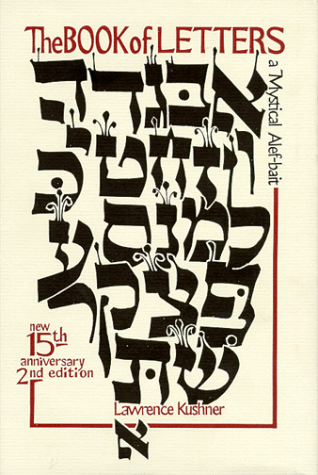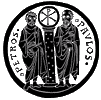My mother's paternal grandmother came from an unbroken line of Holbrooks that stretched back to a certain Thomas Holbrook (1601–1674) a selectman and constable in the Massachusetts Bay Colony. So while visiting my parents when they were living in Massachusetts, I made a point of checking out the old graveyards in downtown Boston to see if I could find my illustrious forebear. As might be expected, I found nothing. It crossed my mind that this Thomas Holbrook was not such a notable personage after all. Or perhaps the family tradition in this matter was a fabrication. After all, when I was a little child, my mother's father told me a convoluted story of growing up in Missouri and running away on a Mississippi river boat where he learned to play the banjo. When I retold this story with its Huckleberry Finn ring to my mother, she laughed it off, saying, "I don't know anything about his living in Missouri." (He was from Nebraska.) So, could he have invented his family tree? I doubt it. The tree is quite unambiguous: "Thomas begat Thomas, who begat Peter, who begat Sylvanus, and so on down to Grandpa, who begat Mom, who bore me! In other words, if Thomas had never existed, I wouldn't be here, or so I wanted to believe. Anyway, such is the plight of those egyptologists who choose to believe that Joseph and Moses really existed and that the Exodus really happened (as some have denied). Reliquiae are few and far between, given that the length and breadth of Egypt has so far yielded not one smidgen of solid evidence. One would think that ten successive plagues, each one worse than the last, would prompt at least one bedraggled Egyptian to write on his papyrus, "Dear Diary, another day, another plague." Instead only one stela of that period, the Merneptah Stela, makes a passing mention of the Hebrew people, which proves the Egyptians knew of their existence, and nothing more. Consequently, the vast majority of egyptologists hold the Biblical accounts as nothing more than fairy tales. In this book Hoffmeier sets the record straight by citing the evidence that the "nattering nabobs of negativism" choose to ignore. An excellent example is the tomb of one Aper-el, vizier, mayor, judge, and so-called "father of the god Pharoah Amenhotep III," and what's more, a Semite like Joseph! Hoffmeier observes that "if such a high ranking official, such as vizier Aper-el, was completely unknown to modern scholarship until the late 1980s a.d., despite the fact that he lived in one of the better documented periods in Egyptian history, and was buried in arguably the most excavated site in Egypt, it is wrong to demand, as some have done, that direct archaeolgical evidence of Joseph's existence should be available if he were an historical figure" (p. 94). It is unfortunate that he felt compelled to preface his statement with "if," since it betrays his own doubt and undercuts his argument. That notwithstanding, this book comes across as a sharp polemic against the nay-sayers. How can you claim the Bible is false, he asks, and still rely on it to locate various landmarks in Egypt and Sinai? How can you claim objectivity when you have a political ax to grind? How can you accuse the tenth-century Hebrews of failing to write twentieth-century-A.D. history? How can you debate chronologies of events you insist never happened? It's no wonder, he laments, that the archaeological world is in such disarray. Everybody is skeptical for skepticism's sake. Ask a hundred scholars what they think and you'll get a hundred different theories. As a result, absolutely nothing makes sense, so he appeals to sheer common sense. Enough of all this foolish skepticism! He comes up with plenty of linguistic and geographical evidence from the Pentateuch to prove that whoever wrote it (traditionally said to be Moses himself) had to have actually lived in Egypt. (Is this any surprise to us?) A good example is the "Pi-ha-hiroth" in Exodus 4:12 and Numbers 33:7. This has often been mistaken for an Egyptian place name when in fact it is Hebrew for "Mouth of the Canals." When you go to that part of Egypt you wonder, "What canals?" Aerial photographs taken by the Israel Geological Survey reveals traces of what was called the Eastern Frontier Canal (Figures 17–19). As the Great Wall of China kept out marauding Mongols and Hadrian's Wall kept out marauding Picts, this canal with its massive forts kept out marauding Bedouins. But nothing is left of either the canal or the forts that God had warned the Israelites to steer clear of so that the Pharaoh could not say, "They are entangled in the land; the wilderness has shut them in." In 1991, Hoffmeier asked the Jet Propulsion Laboratory and NASA to include Suer and the Sinai in radar scanning missions to turn up more clues, but the 1994 missions somehow missed the mark each time (p. 171). It can be assumed the most recent "Endeavor" mission was a success. Because many egyptologists don't read Hebrew, and Biblical scholars don't read hieroglyphics, Hoffmeier doesn't assume the reader has any knowledge of either. Furthermore, his direct quotes are all in English. This makes for a mercifully readable text, but be prepared for lots of scholarly detail. On the whole I found this a fascinating book and give it two thumbs up. By the way, as a brief postscript, I have it from my mother that Thomas Holbrook settled in Weymouth, Massachusetts and may have moved to New Hampshire. Therefore, I was searching for his grave in the wrong place. So if the egyptologists also keep searching, they just might find the hard evidence they need. Written in Tucson on the occasion of
It seems that not many people understand that one of the secrets to learning a language is to nourish a desire to assimilate aspects of the culture it reflects. If, for example, one wants to learn German, one must in some sense want to BE German. Therefore, those who find learning German to be extremely difficult may be failing to feel any "German-ness" in themselves. Thus it was that with some trepidation I approached the study of Hebrew. It appeared to me somehow to be a question of whether, in keeping with the above insight, I might want to be (or feel) Jewish. I solved the problem for myself by remembering that the Church is the New Israel, that the Apostles and by far most of the earliest Christians were Jews. And that although the Greek Septuagint is the Old Testament of the Church, it was Jews who executed its translation from the Hebrew. Thus Hebrew is a valuable ecclesiastical language that can be, and perhaps should be, used by Christians. Even so, when looking at possible Hebrew study aids, I have to continually ask myself, "Will this book help me learn Hebrew, or will it try to make a Jew out of me?" So when I picked up The Book of Letters at Barnes and Noble on my recent visit to Tucson, my first reaction was to put it right back. But then I decided to take a closer look at it. "I like it," I thought as I paged through it. "I LIKE it! I LIKE IT!" You don't have to be a Jew to appreciate this little book. All it is is a description of the significance of the letters of the Hebrew alphabet. Take, for example, "KAF, the eleventh letter. It is "the palm of the hand." KAF is filled with sincerity: KAVANNAH. "KAF is a cup (KOS) filled with blessing both for those who hold it and those who drink from it. "It contains all the honor a child can bestow on his mother and father. KIBBUD AHV VA-AIM. Honor thy mother and father. That is all there is. KOL. All. "To take your parents seriously is the hardest commandment. To offer them the cup without spilling it. To receive from them the cup without gulping. Such is KAF. The cup of blessing. "A goblet of honor. A crown KETER for your head. "But only he shall drink who has himself spilled, and gulped, and wept. "Only he who is beaten KATEET, like oil which has been beaten from olives, until he is KASHER, pure and fit, shall drink. "Then KAF transforms itself into a crown. "But of course once you have reached the rung of ‘The Crown' KETER you would sooner give the crown to your mother and father. Never forget that your parents were the instruments God used to bring you into the world, and so must they be, in some sense, the instruments through which you must return to HIM." The little reference to KASHER (kosher) is the only reminder that this is a Jewish book. But the tribute of sons and daughters to the honor of father and mother is particularly true and pertinent to all (most certainly on the 50th anniversary of the parents' marriage). In the words of the Septuagint, the Biblical commandment reads: "Honor thy father and thy mother, that it may be well with thee, and that thou mayest live long on the good land, which the Lord thy God gives to thee" (Exodus 20:12). I give this book two thumbs up — and maybe a big toe, too? John Bockman, Tokyo, Japan
The Holy Fathers Speak Marriage was not instituted for wantonness or fornication, but for chastity. Listen to what St. Paul says: "Because of the temptation to immorality, each man should have his own wife and each woman her own husband." These are the two purposes for which marriage was instituted: to make us chaste, and to make us parents. Of these two, the reason of chastity takes precedence. When desire began, then marriage also began. It sets a limit to desire by teaching us to keep to one wife. . . This is the gift of marriage, this is its fruit, this is its profit. . . Not even any thought of wantonness ever enters the mind of the man who truly loves his own wife, but he continues always content with her. By his chastity he attracts the good will and protection of God for his whole household. . . . In children we have a great charge committed to us. Let us bestow great care upon them. . . Let your sons be so modest as to be distinguished for their steadiness and sobriety. . . Let them learn to govern their appetites, to avoid extravagance, to be . . . affectionate and submissive to rule. . . Let all things be done to the glory of God and to our salvation, through Jesus Christ our Lord. — St. John Chrysostom
Oxford University Press, 1966, 244 pages
Reviewed by John Bockman, Tokyo, Japan

Woodstock, Vermont: Jewish Lights Publishing,
1990, 70 pages
Reviewed by John Bockman, Tokyo, Japan
the 50th Wedding Anniversary
of Father John and Presbytera Valerie
jbockman3rd@aol.com

Return to Table of Contents